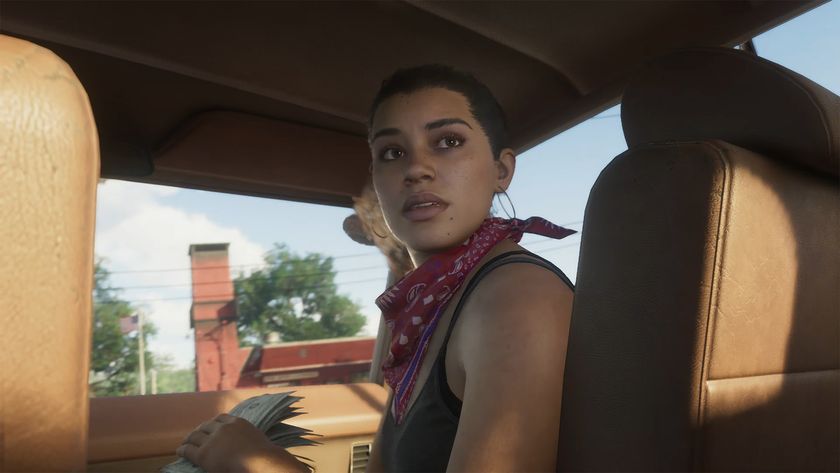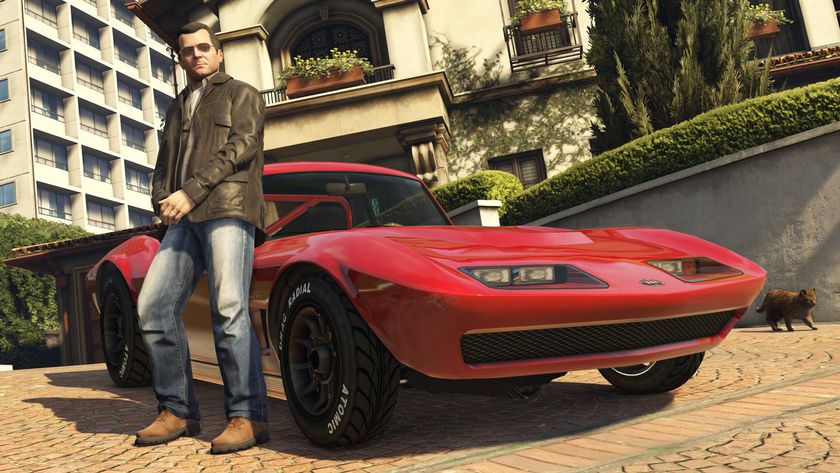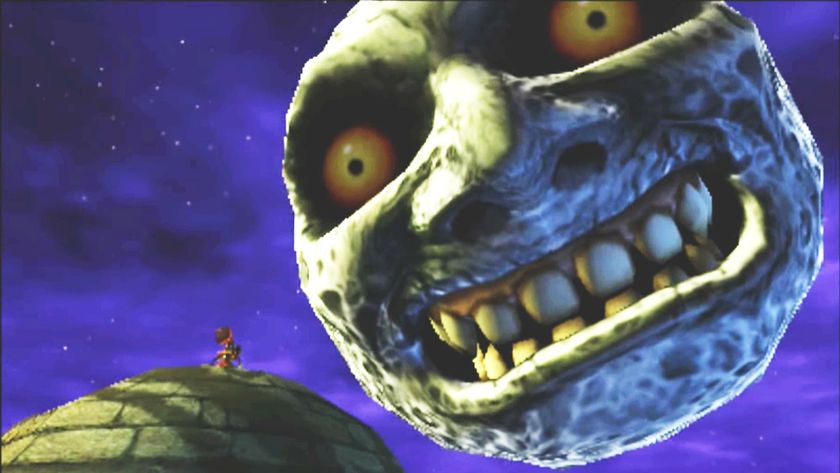Cynical about The Force Awakens? Thats not big or clever. Its the opposite
I knew it would come. It always does. Out there, in the dark corners of the internet, pools of thick, black, sentient negativity are always watching. Always watching, and always waiting, for the first hint of focused joy and excitement, so that they might jump upon it and try to smother it with dumb, cloying, single-minded misery. The internet, you see, has a kind of auto-immune system for combating fun and positivity. At the first sign of widespread enthusiasm, its slimy antibodies will crawl forth, mocking innocent happiness as misguided naivety, eager to crush it under the weight of self-aggrandising misery.
So I knew that it would come for Star Wars. Such a vast, unanimous outpouring of giddy goodwill as that generated by the second trailer for The Force Awakens could not go unnoticed or unpunished. I knew that it would come, but this time, rather than gritting my teeth and bracing myself for the drone of one-note naysaying and cacophonous scoffing, I just let it happen, and got merrily on with my day. Because this time, it didn’t matter. This time, it didn’t have a leg to stand on. The internet can twist a negative spin out of almost anything it sees, but in the face of such splendour as the Episode Seven preview, its attempts were naught but the most desperate flailings.
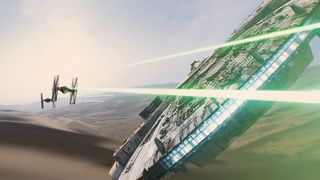
I knew exactly the form those flailings would take. They were as predictable as they were misguided. There were two. The first?
'Don’t get excited. Everyone got excited about the Phantom Menace trailer too, and look how that turned out.'
The second?
'My feed is full of adults gushing like children. It’s only a film. Grow up'
Both of these arguments (which I’ll address directly in a moment), while seeming to hold weight upon a first, cursory glance, are in truth nothing but the most lazy, ill thought-out, mudslinging by numbers. Bog-standard self-congratulation by way of a knee-jerk refusal to have fun. I’ll spare you the full dissection, as Ashley did a great job of tearing apart the base mentality of those who equate cynicism with wisdom a little while ago. But the bottom line is that not enjoying things does not automatically make you smarter, especially if you decided to not enjoy things for the specific purpose of looking smart. There’s nothing clever about twisting the facts to fit in with a contrived world view where things are not as good as they actually are.
Sign up to the 12DOVE Newsletter
Weekly digests, tales from the communities you love, and more
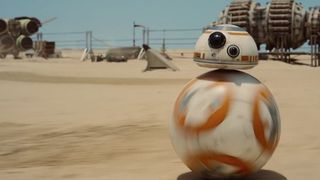
As for those facts, I’ll tackle the latter argument first, as it is, quite simply, the silliest. Because if you think that films and stories are just simple entertainment, with no meaning, or significant, real-world resonance after their telling, then you’re either listening to the wrong stories or you’re not listening hard enough. Why does Star Wars in particular matter? There’s a raft of reasons, but as I get older, and more able to critically appraise what I experienced during those joyful ‘80s Christmases, when the whole trilogy seemed to be on TV every single night, the more I realise what a perfect storm its characters and themes fed into my awareness of the world.
Luke showed me that it’s okay to be naive, and green, and uncertain, and messy, because you will grow past that if you stay focused and stay good. Han and Chewie showed me that however different, if two people have enough trust and ability between them, they can survive and achieve anything. Leia, brilliantly, was never ‘the girl’. She was just the certain, forthright, no-bullshit one who got things done when everyone else floundered. Already having a badass mum and a very feisty little sister at that point, I was very well versed in all of this, and Leia just locked it in. The concept of gender disparity - or gender even being important - was clearly just the most insubstantial nonsense. And going back to Mr. Solo in his own right, Han showed me that it’s entirely possible - necessary, even - to succeed by living life on your own terms, that the values and methods of others are only ever a suggestion, and that it’s okay - in fact valuable - to have different beliefs and philosophies to your friends, as long as you can pull together as a team when needed.
Bloody Hell, Star Wars is good. And it’s important. It was then, and it still is now, and so it’s entirely legitimate that I, and the rest of the generation that grew up influenced and enriched by it, should care so much that it carries on in the right way. That’s why I felt no shame when my eyes grew misty for the third time in a row at “Chewie, we’re home”, as the increasing weight of the grin spreading across my face forced self-consciousness down to the floor and made it submit. Because I know how much I enjoy life, and how much I get out of it every single day, partly because of things I learned decades ago from a ragtag bunch of rebel scum. So it’s important that I know Han’s still out there, still doing the same and representing the same; still having a bloody great time being Han bloody Solo, and still with that mischievous, supernova twinkle in his eye. No, he doesn’t exist, but yes, he really matters. And I’ve really missed that twinkle.
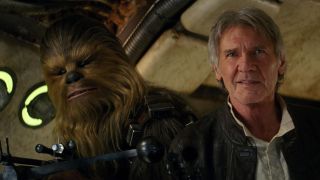
As for the Phantom Menace argument? Episode One could not be less relevant. Because there’s a fundamental difference this time around, which should need little explanation if you’ve understood any of the above. The prequel trilogy was made by George Lucas. The sequels, however, are the first Star Wars films to be made by the generation that grew up on Star Wars.
The fact is, whatever magic George Lucas created in the ‘70s and ‘80s, he could not have made an authentic Star Wars film by the late ‘90s. By that point, Star Wars was not what he thought it was. However insightful and talented they might be, no creator can ever truly appreciate their own work in the same way way that its audience does, in much the same way that no one person sees in the mirror what the rest of the world perceives. That’s just the nature of the difference between creation and consumption. Both sides have a completely different relationship with the work in question.
And as the years went on, it became increasingly clear that George saw only the flaws in the original trilogy. He didn’t see what we saw. He didn’t appreciate the films as glowing, cultural touchstones, full of vitality, humanity, exhilaration and joy. He saw them as imperfect technical exercises, as matte paintings in need of tidying up, of composite shots that would have been better in CG. It’s a long-stated axiom that no piece of art is ever finished, that the creator just finds a point at which they can lay down their futile perfectionism and step away. It’s a truthful one too. But George never stepped away. He tweaked, he revisited, he tinkered, and through both his interviews and his output – by way of the now-dominant, much maligned Special Edition trilogy – it became clear that he saw Star Wars primarily as a broken down fixer-upper, a machine to be repaired with spanners, screwdrivers, and polished, computer-generated green-screen work.
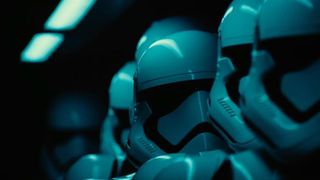
Going into the prequel trilogy with that mentality in charge, neither we nor the films had a chance. That became apparent as the three unfurled. It wasn’t Star Wars. It was a man long out of touch with Star Wars trying to emulate what he thought he remembered Star Wars had been, mechanically pastiching its image, but forgetting its soul, and building only a plastic façade, a superficial theme park recreation, in the process. It was a flashy, hollow and sad experience, and for all the naivety we had back then, those of us who were old enough could tell the difference immediately, even if we denied it for a little while.
Because we were naive back then. Back then, there had never been a bad Star Wars film. We had only ever known the original trilogy, and Star Wars had only ever been a sparkling, scintillating source of wonder and adventure. Star Wars was good. It was just good. It could not be bad. Another impossibility was the very idea of another Star Wars film even existing. We’d all been teased as children by that ‘Episode IV’ subtitle. We’d all spent years – decades, even – dreaming of the possibilities, soaking up the expanded universe through the books and games, excitedly debating how Anakin had gone wrong, how the empire had come to be, how old exactly Yoda was, and what had forced him into hiding. Episodes One to Three were folklore and myth long before they existed as tangible stories, and carried a power and a weight that tangible stories could not. Their announcement was, on two separate levels, a fairy tale become real.
2015 is nothing like 1999 was. We’ve had 15 years of bad Star Wars. We’ve had that direct, unbroken link to the original trilogy smothered by three misfiring impersonations. We aren’t naïve any more. So why are we losing our shit, a decade and a half older, wiser, and supposedly more cynical? Because The Force Awakens feels different. We’ve seen Star Wars done wrong. We know what that looks like now, and we appreciate what good Star Wars looks like all the more for it. We know clearly and instinctively what really matters, in a way that we never did before it was taken away from us. And The Force Awakens looks to be made of what matters.

We’re not looking at a goofy, cartoonish CG showreel, like The Phantom Menace trailer, made of slavishly shoehorned continuity, sparkling, incongruously sleek ship designs, and characters straight out of Saturday morning TV. We’re looking at crashed, half-buried Star Destroyers and melted Sith helmets, whose grubby, matter-of-fact majesty tells us everything we need to know about the last 20 years in a galaxy far, far away. We’re not looking at pomp and prophecy, at picturesque cities and podracing setpieces. We’re looking at modern, Battlestar Galactica-style shakycam shots following the Millenium Falcon. We’re looking at a world where things are chunky, and flawed, and real. This doesn’t feel like a film trying to recreate Star Wars. It feels like Star Wars just being Star Wars, delivered from our side of the equation and hitting all the touchstones and feelings that we know matter.
Deny and ignore all of that if you like. Strip the context, and layers, and nuance out of this story in order to serve your reductive retcon. Deal only in the most superficial statements if it makes you feel smarter. I really won’t care. Because while I’m all for critical thinking, I have no time for cynicism. And if the last 37 years have taught us anything, it’s that great things can come from a new hope.
Most Popular





